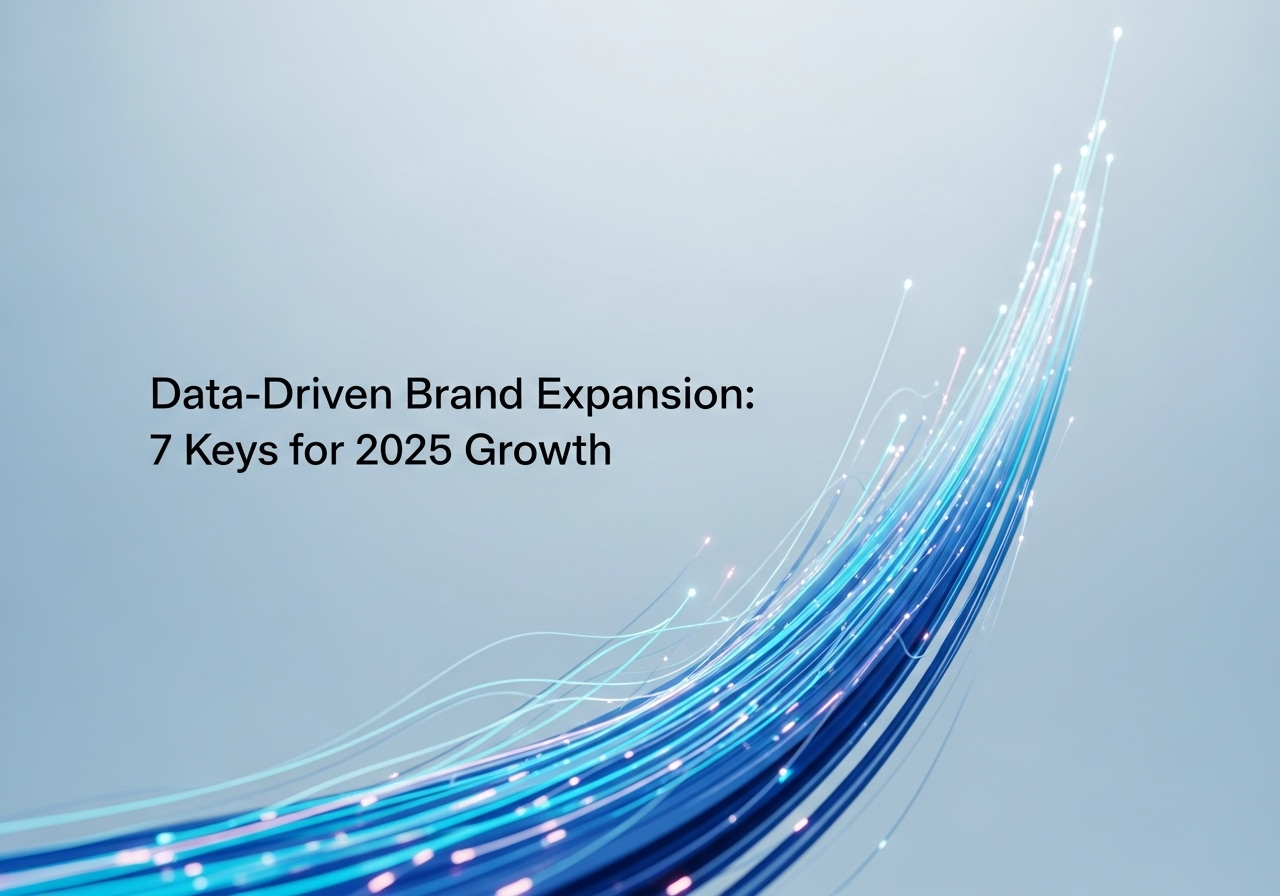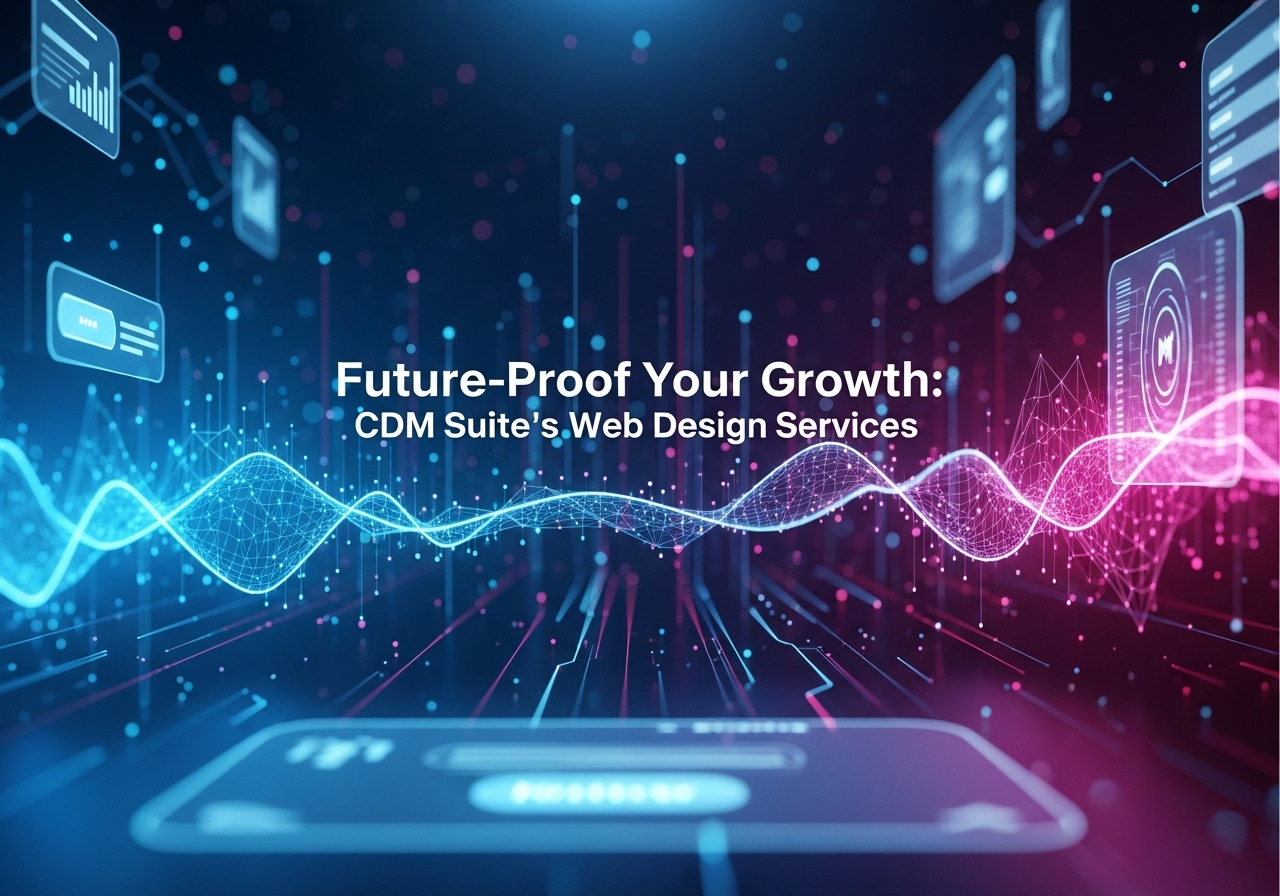The Data Revolution in Brand Expansion
Did you know that 64% of marketing executives now strongly agree that data-driven marketing is crucial in today’s business landscape? As we navigate through 2025, this statistic has never been more relevant for brands looking to expand their market presence and drive sustainable growth. Because the era of making business decisions based on gut feelings is long gone, today’s successful brand expansion strategies are firmly rooted in data.
Why Data-Focused Strategies Matter in 2025
Today’s consumers expect pinpoint personalization and thoughtful privacy practices from the brands they engage with. Consequently, anything less leaves your brand playing catch-up in an increasingly competitive market. Data-focused brand expansion allows companies to:
- Deliver hyper-targeted campaigns securely
- Create cohesive brand experiences across multiple touchpoints
- Adapt quickly to changing consumer behaviors
- Make informed decisions about resource allocation
- Measure ROI with greater precision
Ultimately, the brands that succeed in 2025 are those leveraging data and technology in strategic ways to achieve scale, efficiency, innovation, and profitability. This evolution—what industry experts call marketing transformation—is essential for staying competitive and relevant.
Key Components of Data-Focused Brand Expansion
First-Party Data: Your Most Valuable Asset
With privacy regulations like GDPR and the California Consumer Privacy Act limiting access to third-party data, and major browsers implementing tighter privacy restrictions, first-party data has become the cornerstone of successful brand expansion strategies.
First-party data—information collected directly from your audience—provides deeper insights into customer preferences and behaviors while respecting privacy concerns. Moreover, it allows for more personalized marketing approaches that resonate with audiences on a deeper level.
How to Leverage First-Party Data:
- Implement robust data collection mechanisms across all customer touchpoints
- Ensure proper consent management and data governance
- Create unified customer profiles by integrating data from various sources
- Develop segmentation strategies based on behavioral patterns
- Use predictive analytics to anticipate customer needs
By 2025, brands that have invested in building comprehensive first-party data assets will have a significant competitive advantage in their expansion efforts.
Customer Segmentation and Personalization
In the realm of data-focused brand expansion, customer segmentation and personalization reign supreme. This powerful approach divides your customer base into distinct groups based on shared characteristics like behavior, demographics, preferences, and purchasing patterns.
Advanced segmentation goes beyond basic demographic information to include:
- Behavioral Data Analysis: Utilizing clustering algorithms to group customers with similar traits
- Personalization Engines: Implementing dynamic content delivery systems that personalize user experiences based on segment characteristics
- Real-time Adaptability: Adjusting content instantly to ensure relevance and engagement
The business value of personalization continues to grow as customers gravitate toward brands that make them feel understood as individuals. In fact, brands excelling in personalization are exceeding their revenue goals because their customers buy more, more often, and remain loyal over time.
Modern CRM: The Engine of Brand Expansion
Modern Customer Relationship Management (CRM) serves as the engine behind all addressable brand connections, transforming how brands engage with consumers in a digital world. It breaks down organizational silos by bringing together marketing technology, data, analytics, AI, and experience design. Explore more strategies on our blog.
A robust CRM strategy enables:
- Unified view of customer interactions across channels
- Automated, personalized communication sequences
- Improved customer retention through proactive engagement
- Enhanced cross-selling and upselling opportunities
- More accurate customer lifetime value calculations
For brands looking to expand in 2025, modern CRM is the answer to becoming truly consumer-centric, creating personalized, relevant connections that resonate with consumers at every touchpoint—both paid and owned.
Integrating AI into Your Brand Expansion Strategy
Artificial Intelligence has moved beyond being a buzzword to becoming a business asset. By the end of 2024, Generative AI had become an essential component of nearly all enterprise software offerings, and in 2025, it’s a competitive advantage for those who leverage it effectively.
How AI Enhances Data-Focused Brand Expansion
AI is transforming marketing by automating processes, enhancing personalization, and analyzing large datasets. For instance, tools powered by AI can:
- Predict customer behavior with remarkable accuracy
- Optimize ad placements across digital channels
- Generate dynamic content tailored to specific audience segments
- Identify emerging market trends before competitors
- Streamline marketing operations for greater efficiency
For brands pursuing expansion, AI-powered tools like chatbots, predictive analytics platforms, and automated content generation systems provide scalable solutions that grow with your business.
Data-Driven Marketing Strategies for Brand Expansion
1. Omnichannel Marketing Approaches
With consumer journeys becoming increasingly complex, brands must create cohesive experiences across all channels. Data-driven omnichannel marketing ensures consistency in messaging while adapting to the unique characteristics of each platform. By connecting these dots, brands can expand their reach while maintaining a unified customer experience, a core component of sustainable brand expansion.
2. Content Marketing Evolution
Content remains king in 2025, but the approach has evolved significantly. Data-focused content strategies prioritize:
- Interactive content that engages users directly
- Long-form, in-depth articles that establish authority
- User-generated content that builds authenticity
- Strategic repurposing of existing content for greater relevance
- Content personalization based on user behavior and preferences
3. Leveraging Data Analytics for Decision-Making
Data-driven marketing enables businesses to make informed decisions about expansion opportunities. Advanced analytics tools uncover actionable insights that refine strategies in real-time. These analytical frameworks provide the foundation for sustainable brand expansion by identifying the most promising growth avenues.
Building Your Data-Focused Brand Expansion Strategy
To develop an effective data-focused brand expansion strategy for 2025, follow these steps:
- Assess Your Current Data Capabilities: Evaluate your existing data assets, technology stack, and team skills to identify gaps and opportunities.
- Define Clear Expansion Objectives: Establish specific, measurable goals for your brand expansion efforts.
- Develop Your Data Collection Framework: Create a comprehensive plan for collecting, storing, and activating first-party data.
- Implement Advanced Segmentation: Move beyond basic demographic segmentation to behavior-based and predictive approaches.
- Integrate AI and Automation: Identify opportunities to leverage AI for enhanced personalization, efficiency, and decision-making.
- Create Measurement Frameworks: Develop clear KPIs and attribution models to track the impact of your expansion efforts.
- Test, Learn, and Iterate: Implement a culture of continuous testing and optimization based on performance data.
Conclusion
Data-focused brand expansion isn’t just a marketing strategy—it’s a business imperative for 2025 and beyond. By leveraging customer segmentation, first-party data, modern CRM practices, and AI-powered tools, brands can create more personalized, effective, and efficient expansion strategies. The most successful companies will be those that not only collect data but transform it into actionable insights that drive meaningful customer connections and business growth. As consumer expectations continue to evolve and competition intensifies, data-driven approaches provide the clarity and precision needed to expand strategically and sustainably.
Want to know EXACTLY what’s missing in your marketing strategy? Visit CDM Suite’s free 3-minute marketing assessment today and get a custom growth plan tailored to your business needs!



